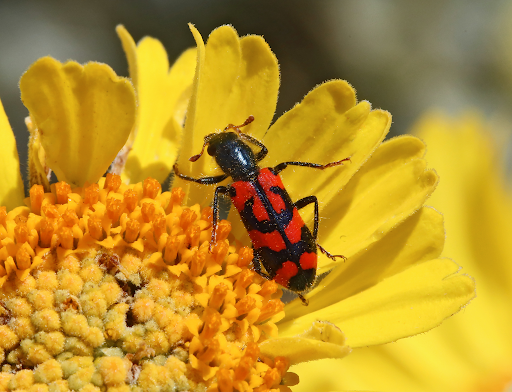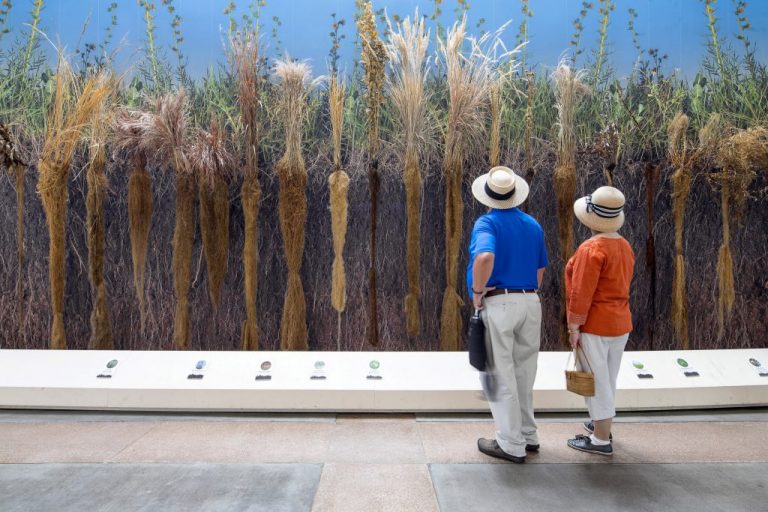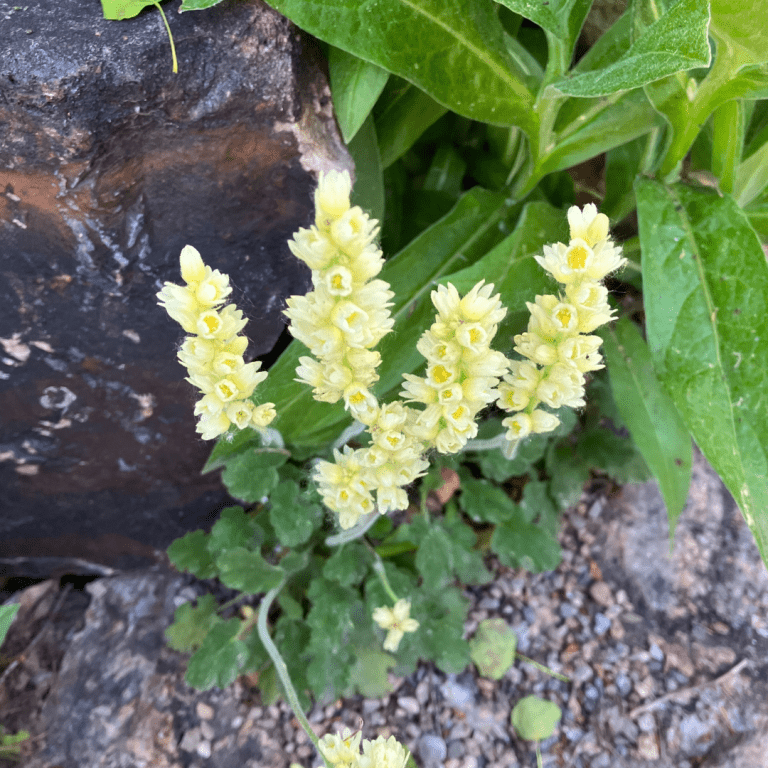On August 25, 2022, the Science Elevated Speaker Series at Betty Ford Alpine Gardens hosted Brad Udall, Senior Water and Climate Research Scientist at the Colorado Water Institute, Colorado State University, for an illuminating discussion on the Colorado River and its future amid a changing climate. Mountain communities across the West rely on the river for drinking water, agriculture, recreation, and maintaining vibrant ecosystems. Udall’s presentation highlighted how climate change is already affecting the river basin and its delicate balance, and what the future may hold for the region.
Rising Temperatures and a Warmer Basin
Water is the lifeblood of mountain communities, and understanding how climate shifts influence water availability is critical. Udall opened the discussion by emphasizing that the Colorado River Basin has already experienced significant warming. Since the mid-20th century, average temperatures in the basin have risen by more than 1°C, with projections indicating that temperatures could increase by 2°C or more by mid-century. These warming trends are not just numbers—they have real consequences for snowpack, river flows, and water supply reliability throughout the region especially during drought years.
Reduced Streamflow and Water Challenges
One of the primary impacts of rising temperatures is reduced streamflow. As temperatures climb, more precipitation falls as rain instead of snow, and snow that does accumulate melts earlier in the season. This shift disrupts the timing and quantity of water flowing into rivers, reservoirs, and downstream communities. Udall explained that this reduction in streamflow, combined with increased evaporation and other system losses, challenges water managers and communities that rely on the Colorado River for multiple needs including agriculture and municipal supply.
Impacts on Ecosystems and Recreation
The consequences of these changes extend beyond human water use. Ecosystems that depend on consistent flows are under increasing stress. Wetlands, riparian habitats, and native fish populations face altered conditions that can threaten biodiversity and ecosystem health. Udall highlighted that these ecological shifts are interconnected with human activity; as the river’s flow diminishes, recreational opportunities and local economies tied to tourism and outdoor activities may also be severely impacted.
Adapting Water Management Strategies
Udall also addressed the broader implications of these trends for water management in the Colorado River Basin. With warming temperatures and fluctuating precipitation patterns, traditional water allocation strategies face growing pressure. Communities, agricultural operations, and water managers must adapt to a future where water availability is less predictable. Udall stressed that proactive planning, conservation, and collaboration across state and local agencies are essential for sustaining both human and ecological systems ensuring long-term resilience.
Understanding the Science to Drive Action
Throughout his presentation, Udall combined scientific data with a clear vision of what these changes mean for residents and visitors alike. He emphasized that while challenges are significant, understanding the science behind them is the first step toward resilient solutions. By highlighting trends, projections, and potential strategies, Udall encouraged attendees to consider how individual actions, policy decisions, and community engagement can make a difference in protecting vital water resources.
For those who missed the event, Udall’s presentation is available to watch online, offering valuable insights for anyone interested in the intersection of climate, water, and mountain communities. His expertise underscores the importance of recognizing the Colorado River not just as a natural resource, but as a critical element of life, culture, and recreation in the West.
As mountain communities navigate a changing climate, conversations like this remind us of the urgency to understand, adapt, and act. Water truly is life, and the future of the Colorado River Basin depends on how well communities, scientists, and policymakers work together to meet the challenges ahead.





